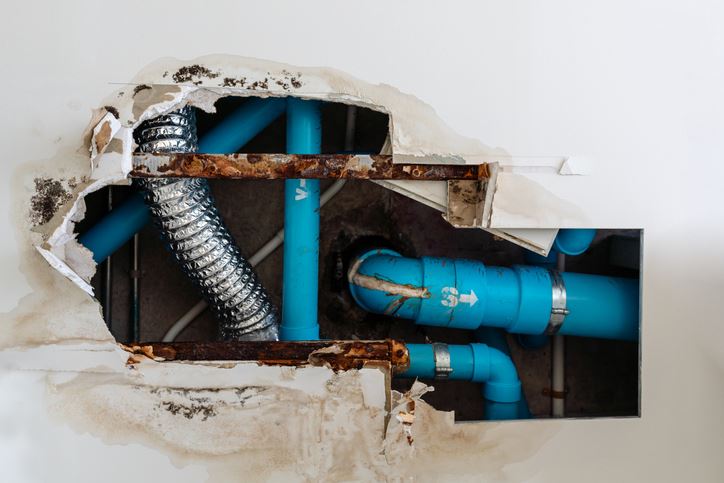
Plumbing that supplies clean drinking water, water to bathe, and water for your plants is made possible through the intricate connections of pipes in your home. One corroded pipe can drive a wrench through the entire system.
Corrosion is silent but deadly. You could have a perfectly healthy home for years, all the while the plumbing underneath your home is rotting away. Metal pipes are likely to corrode at some point, with copper pipes being much more susceptible to corrosion.
As pipes reached 40 or even 30 years old, points of corrosion will appear and lead to hundreds if not thousands of dollars’ worth of damage. Here’s what you need to look out for to prevent this from happening to your home.
Water pH Levels
A neutral pH level for water is a level of 7. Suppose the pH of your water is above or below 7, basic or acidic, respectively. In that case, your pipes will experience a higher rate of corrosion. The source of your water influences the level of pH, with mineral content and water filtration affecting your pipes’ condition.
High Oxygen Levels
With metal, oxidization results in brown, destructive rust. The same thing can happen to your pipes as a result of high oxygen levels in your water. A sign of rust on the interior of your pipes is reddish-brown water. Call a plumber immediately if you notice this in your water.
Chemical Drain Cleaners
These tools are perhaps the only way homeowners actively corrode their pipes. A large amount of chemicals can easily destroy the interior of your pipes. Plus, these drain cleaners don’t effectively clean your drains. Opt for drain snakes instead.
Water Velocity
Depending on the rate your water flows through your pipes, your pipes’ fittings could be taking damage. This issue worsens if the temperature of your water is high.
Bacteria in Your Water
Bacteria is everywhere. There are probably micro amounts in your water right now. Something called microbiologically influenced corrosion is difficult to avoid. The older your pipes are, the more likely this type of corrosion is affecting your plumbing.
The Presence of Sediment
Think of sediment like tiny rocks flowing through your plumbing. Water that isn’t filtered and has higher concentrations of calcium and magnesium is known as hard water. The heavy minerals in hard water scrape against the interior of your plumbing, slowly leading to disintegration of the interior walls of your pipes.
Re-laying your plumbing may sound like a big task, but it’s as easy as calling Blue Star. We make plumbing repairs and plumbing installation services simple with an efficient, highly skilled team of experienced plumbers. It’s always better to prevent an issue than deal with the consequences, so call us today to address the corrosion in your plumbing.
